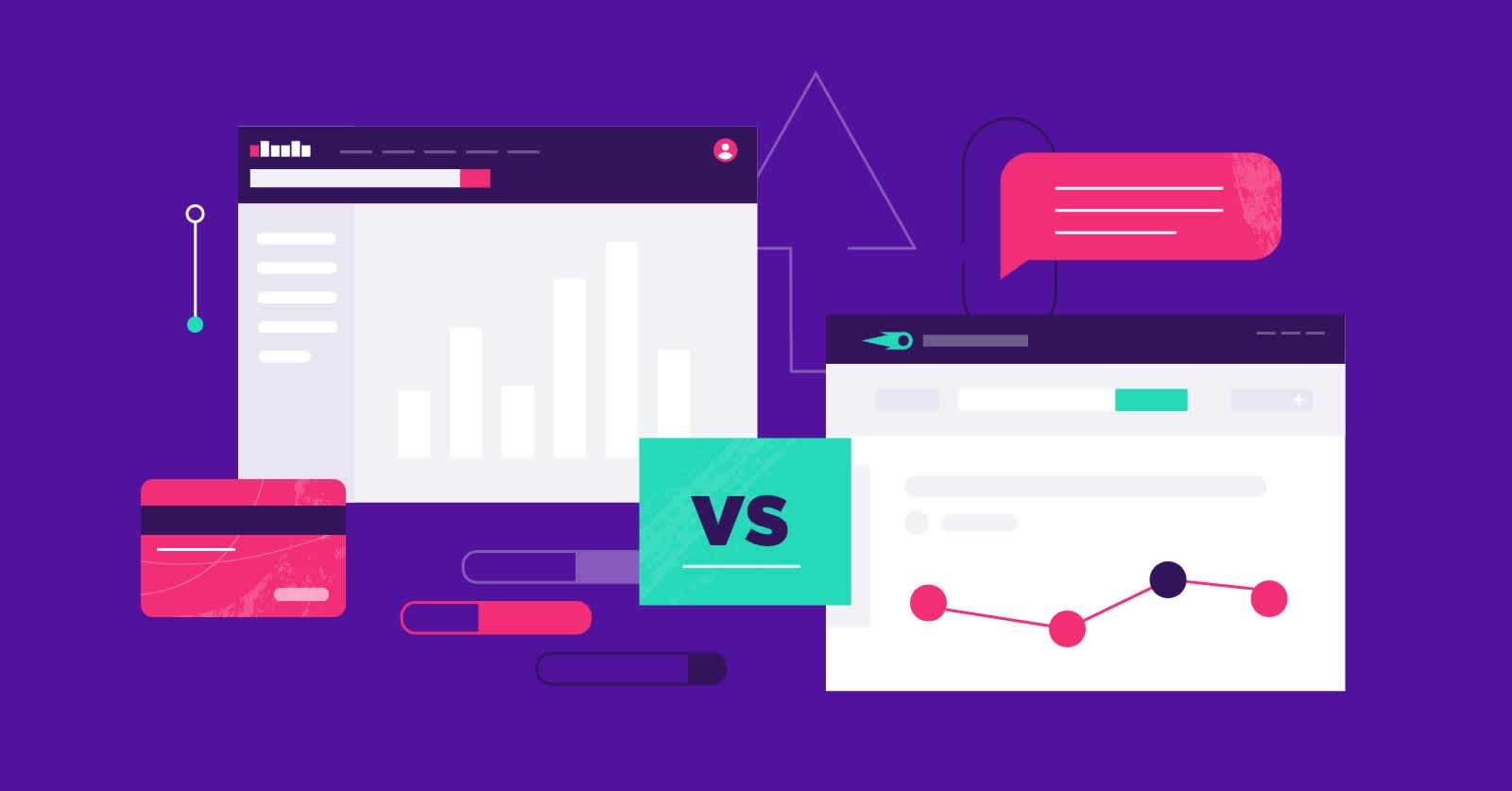Search Engine Optimization (SEO) has significantly transformed the digital marketing landscape. It sets precedence for business operations and helps to enhance the online visibility of websites. If you are looking to understand SEO in-depth, then you are in the right place. In this article, we will discuss the types of SEO, their importance, and how they contribute to improving a website's ranking on search engines.
What is SEO?
SEO stands for Search Engine Optimization. It is a practice that involves optimizing a website's content to make it more attractive to search engines. The ultimate goal of SEO is to increase the website's visibility in search engine results pages (SERPs), which leads to an increase in organic (non-paid) traffic.
Now, let's dive in and look at the types of SEO.
On-Page SEO
On-page SEO refers to the practice of optimizing individual web pages to rank higher and earn more relevant traffic on search engines. With on-page SEO, you have complete control over the factors that influence rankings.
Here's a quick run-through of the prominent components of On-page SEO:
Keyword research: It involves finding the right keywords to target in your content. Tools like Google Keyword Planner can help in identifying appropriate keywords.
Meta Tags: These HTML tags provide information about the website for search engines and users.
Headers: Header tags from H1 to H6 help to identify headings and subheadings in your content. Best practice involves including keywords in your headers.
URL Structure: Optimized URLs are easier to crawl and should ideally include your primary keyword.
Content Creation: Creating high-quality, engaging, and keyword-optimized content is crucial in on-page SEO.
Off-Page SEO
Off-page SEO involves techniques beyond the website's boundaries. It's all about increasing your domain authority by getting links from other websites. A good number of valuable backlinks will improve your website's visibility on search engines.
Here are some strategies used in off-page SEO:
Link Building: Earning links from reputable websites can increase your site's credibility.
Social Media Marketing: Social media sites are a great way to promote your content and increase visibility.
Guest Blogging: Posting content on other popular blogs can drive new visitors to your site and help build domain authority.
Technical SEO
Technical SEO is not about the actual content of a website or website promotion. Instead, it focuses on improving a website's backend structure. When done correctly, it can significantly improve a website's readability, making it easier for search engines to crawl and understand the website.
Key aspects of Technical SEO include:
Website speed: A fast-loading website provides a better user experience and ranks higher on search engines.
Mobile-friendliness: With the rise in mobile traffic, having a responsive website is crucial for SEO.
XML sitemap: Sitemap helps search engines to crawl and index the website pages more efficiently.
URL structure: Clean and URL-friendly codes are easier to crawl.
SSL certification: HTTPS, indicated by SSL(certificate) ensures your website is secure, which can help it rank higher in SERPs.
Frequently Asked Questions about Types Of Seo
What is On-Page SEO?
On-Page SEO relates to the content present on your website. This includes keyword usage, meta descriptions, title tags, header tags, URL structure, image alt text, and the overall quality and relevancy of your website content. The goal of On-Page SEO is to optimize each webpage to attract search engines and target audiences.
How Does Off-Page SEO Work?
Off-Page SEO, as the name implies, includes actions taken outside of your own website. This mostly relates to 'backlinks' - links from other websites directing to your site. Other aspects of Off-Page SEO include social media engagement, guest blogging, and brand mentions. This type of SEO helps improve your website's reputation and authority, thereby leading to higher search engine rankings.
Can You Explain What Technical SEO is?
While the other two SEO types focus more on content and link-building, Technical SEO is all about the backend structure of your website. This includes site speed, mobile-friendliness, site architecture, secure sockets layer (SSL) certificates, and indexing. Technical SEO ensures that search engines can easily crawl and index a website.
How Important is Keyword Research in Different SEO Types?
Keyword research is a fundamental element of the various types of SEO. In On-Page SEO, these keywords will have to be incorporated naturally within the content, meta descriptions, and title tags. For Off-Page SEO, they can be used to find potential backlink opportunities. Even in the realm of Technical SEO, keywords help understand what searches are leading users to the site and can guide overall website structure.
What is Local SEO?
Although not often categorized as one of the primary types, Local SEO is worth mentioning. Local SEO involves optimizing your website to appear in local search results, an essential strategy for businesses that serve a specific geographic area. It focuses on optimizing Google My Business listing, collecting local customer reviews, and creating content centered around your local area.
How to Identify the Right SEO Type to Focus On?
The right type of SEO to focus on largely depends on your website's current situation and your overall business goals. If your site suffers from low quality or sparse content, focusing on On-Page SEO could be beneficial. If you're lacking in backlinks, Off-Page SEO should take priority. If your website is difficult to navigate or slow, Technical SEO can help. A comprehensive SEO strategy, however, would incorporate all types.
Can I Concentrate on Just One Type of SEO?
While it may be tempting to focus on just one type of SEO, it's important to remember that all types are interconnected. The key to a successful SEO strategy is balancing all three types. Optimizing your website's content, link-building, and technical aspects can help ensure steady, long-term growth in your organic rankings.
Can On-Page SEO and Off-Page SEO Work without Technical SEO?
In an ideal world, one would want all three types of SEO to work hand-in-hand. Neglecting technical SEO can severely impact your website's performance and overall user experience, leading to higher exit rates. Even if you have top-notch content and plenty of backlinks, it won't make any difference if your site is too slow to load or if search engines can't crawl or index your pages.
How Has SEO Evolved Over Time?
SEO has evolved dramatically over the last few years. With algorithms constantly changing, the importance of each type of SEO has fluctuated. Today, however, regardless of current trends, a balanced emphasis on all types of SEO remains the best approach to a fruitful, long-term SEO strategy.
White Hat SEO
Pros
Ethical Approach
This type of SEO relies on using tactics that abide by Google's guidelines, making it the most ethical, respectable and trustworthy approach.
Long-Term Results
White hat SEO focuses on enhancing the user experience which results in long term and sustainable growth in rankings.
No Penalties
Obeying the guidelines of search engines means you won't have to worry about getting penalized which can severely damage rankings and trust.
Cons
Time Consuming
White hat SEO methods like creating high-quality content and improving user experience take a lot of time to implement and even more time to see results.
Higher Investment
Although this approach is more ethical and reliable, it requires a higher investment of both time and money.
Black Hat SEO
Pros
Quick Results
Black hat SEO techniques such as keyword stuffing, hidden text, and link farming often create a sudden and dramatic increase in site rankings.
Less Effort
This type of SEO doesn't require as much work or creativity because it takes advantage of the weaknesses in search engine algorithms.
Cons
Penalties
By disobeying search engine guidelines, your site runs the risk of being heavily penalized or even banned from search results.
Short Lived Success
Quick fixes often lead to rapid success, but also to sudden drops in rankings and traffic once the search engine algorithm catches up.
Gray Hat SEO
Pros
Faster Results Than White Hat
While not as fast as black hat, gray hat SEO achieves quicker results than white hat by bending rules without entirely breaking them.
Less Risk Than Black Hat
It is less risky than black hat in terms of penalties as it walks the line between ethical and unethical practices.
Cons
Ethical Grey Area
Despite not being blatantly against the guidelines, these dubious techniques can often put businesses in an ethical grey area.
Unpredictable
This approach can be unpredictable as search engines update algorithms and the line between white and black can become blurred.
Technical SEO
Pros
Better User Experience
Efficient technical SEO like page speed optimization and mobile optimization leads to improved user experience.
Improved Crawlability
It can make the website easier for search engines to crawl, understand and index which is a fundamental aspect of SEO.
Cons
Requires Technical Knowledge
Technical SEO can be complex as it requires some degree of coding and technical knowledge.
Time-Intensive
Improving technical SEO can be time-consuming especially in large websites with thousands of pages.
On-Page SEO
Pros
Direct Control
Webmasters have direct control over on-page SEO elements like meta tags, content quality, and user-friendly URLs.
Improves Usability
Good on-page SEO can make a page more relevant to a query, and improve usability and credibility.
Cons
Constant Updates
On-page SEO requires constant updates and adjustments as search algorithms change regularly.
Time Consuming
Creating and optimizing the quality content necessary for on-page SEO can be time-consuming.
Off-Page SEO
Pros
Increases Trustworthiness
Off-page SEO helps increase the trustworthiness and credibility of a site in the eyes of search engines through backlinks.
Access to Larger Audience
By focusing on off-page SEO, businesses can tap into a larger audience through techniques like social media marketing and influencer marketing.
Cons
No Direct Control
Businesses often don’t have as much control over off-page SEO because it relies heavily on user behavior, link building, and reputation management.
High Dependence on Others
It relies highly on relationships with others, and the quality or relevancy of those other sites linking to you. Few high-quality backlinks can outweigh hundreds of low-quality ones.
Summary
So there you have it; a brief rundown of the different types of SEO. When it comes to boosting your website's visibility and ranking in search engine results, these are the key strategies you should be looking into. Understanding and implementing these different types of SEO can bring about significant improvement in your online presence.
Whether you're prioritizing on-page, off-page, or technical SEO, remember that they all serve their unique purpose and they work best when used together. It's like a jigsaw puzzle- each piece plays a vital role to create a complete picture. If you leave one out, you're missing a key component that could have a big impact on your website's performance.
Overall, the types of SEO are not standalone solutions; rather, they complement each other and work together to enhance your site's visibility and ranking. Balance is key here. Don’t focus all your attention on one type to the detriment of the others. The sweet spot lies in leveraging all of them in your SEO strategy. Keep exploring and learning about the ever-evolving SEO landscape, and you'll certainly succeed in boosting your digital presence.
About WebPerfex
WebPerfex is a vibrant digital marketing agency situated right in the heart of Sacramento, CA. We're a bunch of passionate folks who live and breathe everything digital - SEO, web design, social media, and more. You might find us geeking out over the latest algorithms or web trends, but hey, that's just how we roll! Our mission is pretty simple: to help businesses grow online and reach their highest potential. We tailor each approach to your unique needs, taking the time to understand your business and goals. Our team is committed to delivering top-notch service with a personal touch. So, want to join us for a digital ride? We'd love to have you on board!




